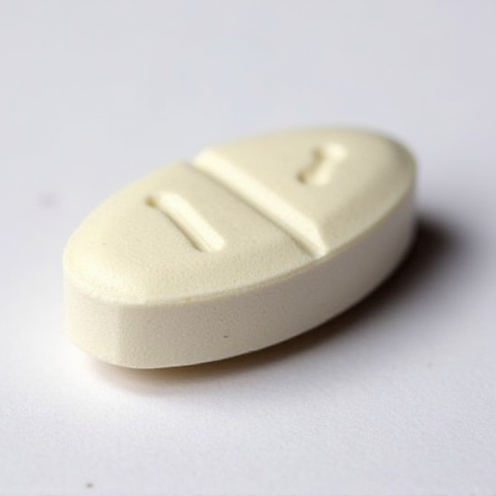Glinorm 1 Tablet
Product Info
| Prescription required | Yes |
| Marketer | Talent Healthcare |
| Active Ingredient | Glimepiride (1mg) |
| Storage | Store below 30°C |
| Chemical Class | Third-generation Sulfonylurea Derivative |
| Habit Forming | No |
| Therapeutic Class | ANTI DIABETIC |
| Action Class | Sulfonylureas (Insulin Secretogogues) |
| User Rating | 4.6 |
| User Reviews | 734 |
FAQ




































Glinorm 1 Tablet Reviews
Glinorm 1 may be used alone or along with other medicines. It should be taken just before or with the first meal of the day. Take it regularly at the same time each day to get the maximum benefit. Your doctor will decide what dose is best for you and this may change from time to time according to your blood sugar levels.
Keep taking Glinorm 1, even if you feel well or your blood sugar levels are controlled. If you stop it without consulting your doctor, your blood sugar levels could rise to put you at risk of diabetes complications such as kidney damage, blindness, nerve problems, and loss of limbs. Remember that it is only part of a treatment program that should also include a healthy diet, regular exercise, and weight reduction as advised by your doctor. Your lifestyle plays a big part in controlling diabetes.
The most common side effects of taking Glinorm 1 include low blood sugar levels (hypoglycemia), nausea, headache, weakness, and dizziness. Make sure you recognize the signs of having low blood sugar levels, such as sweating, dizziness, headache, and shaking, and know how to deal with them. To prevent this, it is important to have regular meals and always carry a fast-acting source of glucose such as sugary food or fruit juice with you. Drinking alcohol can also increase your risk of low blood sugar levels and hence should be avoided. Some people may experience an increase in weight with this medicine.
You should not take Glinorm 1 if you have type 1 diabetes mellitus, diabetic ketoacidosis (high levels of acid in your blood), or if you have severe kidney or liver disease. Before taking this medicine, tell your doctor if you have ever had heart disease, thyroid disease, or some hormonal conditions, as it may not be suitable. Pregnant or breastfeeding women should also consult their doctor before taking it. Your blood sugar levels should be checked regularly and your doctor may also advise blood tests to monitor your blood cell counts and liver function.
How Glinorm 1 Tablet Works
How to Use Glinorm 1 Tablet
Benefits of Glinorm 1 Tablet
- In Treatment of Type 2 diabetes mellitus: Glinorm 1 increases the amount of insulin your body produces (in the pancreas). The insulin then works to lower your blood glucose level. It is usually taken once a day. You should keep taking it for as long as it is prescribed.Lowering blood glucose levels is an essential part of managing diabetes. If you can control the level you will reduce the risk of getting any of the serious complications of diabetes such as kidney damage, eye damage, nerve problems, and loss of limbs. Taking Glinorm 1 regularly along with proper diet and exercise will help you live a normal, healthy life.
Uses of Glinorm 1 Tablet
- Treatment of Type 2 diabetes mellitus
Glinorm 1 Tablet Side Effects

Safety Tips
Quick Tips
- Glinorm 1 can cause hypoglycemia (low blood sugar level) when used with other antidiabetic medicines, alcohol or if you delay or miss a meal.
- Always carry some sugary food or fruit juice with you in case you experience hypoglycemic symptoms such as cold sweats, cool pale skin, tremor and anxiety.
- Take Glinorm 1 shortly before or with the first main meal of the day (usually breakfast).
- Your doctor may check your liver function regularly. Inform your doctor if you develop symptoms, such as abdominal pain, loss of appetite, or yellowing of the eyes or skin (jaundice).
- Exercise regularly, eat a healthy diet and take your other diabetes medicines (if prescribed) alongside.
- Monitor your blood sugar level regularly while you are taking Glinorm 1.
- Be careful while driving or operating machinery until you know how Glinorm 1 affects you.
References
- Glimepiride. Bridgewater, New Jersey: Sanofi-Aventis U.S. LLC.; 2009.
- Briggs GG, Freeman RK, editors. A Reference Guide to Fetal and Neonatal Risk: Drugs in Pregnancy and Lactation. 10th ed. Philadelphia, PA: Wolters Kluwer Health; 2015. pp. 629-30.
- Nolte MS. Pancreatic hormones and antidiabetic drugs. In: Katzung BG, Masters SB, Trevor AJ, editors. Basic and Clinical Pharmacology. 11th ed. New Delhi, India: Tata McGraw Hill Education Private Limited; 2009. pp. 740.
- National Health Services. How and when to take glimepiride. [Last reviewed: 14 Mar. 2022].
- DailyMed. Glimepiride [Drug Label Information].
- Powers AC, D’Alessio D. Endocrine Pancreas and Pharmacotherapy of Diabetes Mellitus and Hypoglycemia. In: Brunton LL, Chabner BA, Knollmann BC, editors. Goodman & Gilman’s: The Pharmacological Basis of Therapeutics. 12th ed. New York, New York: McGraw-Hill Medical; 2011. pp. 1255-1257.
